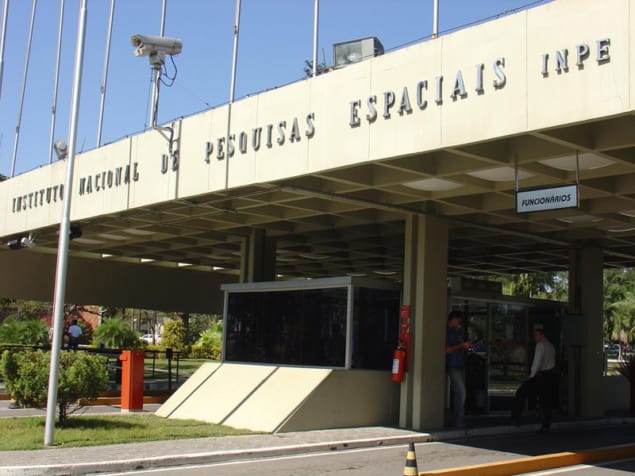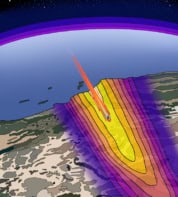
• Update 23 August 2019: Ricardo Galvão resigned as head of Brazil’s National Institute of Space Studies (INPE) on 2 August 2019 after meeeting Marcos Pontes – Brazil’s science minister. Pontes later appointed Darton Policarpo Damiã – an airforce officer who did a Master’s in remote sensing at INPE and has a PhD in sustainable development from the University of Brasília – as INPE’s provisional director.
Brazilian president Jair Bolsonaro has caused dismay among scientists in the country by questioning satellite data that shows the deforestation rate in the Amazon is increasing at an alarming rate. In comments made during a meeting with foreign reporters on 20 July, Bolsonaro accused the head of Brazil’s National Institute of Space Studies (INPE) of “acting on behalf of [a] non-governmental organization”. Bolsonaro’s remarks are the latest in a series of attacks on science made by his administration.
INPE monitors the Amazon rainforest via several satellites that alert the Brazilian environmental agency when they observe cases of deforestation. The agency then sends people to the area to stop any instances of illegal exploitation. Between 2004 and 2012 there was a steady reduction in the deforestation rate in the Amazon from around 28,000 to 4000 square kilometres per year. Yet numbers have been rising since then. In April, May and June this year the amount of deforestation reached 1907 square kilometres, compared to 1528 and 1098 square kilometres for those same months in 2018 and 2017, respectively.
The technology of monitoring biomes through remote sensing, as developed by INPE, is pioneering and has been validated over 30 years
Paulo Artaxo
Indeed, data released earlier this month by INPE showed that the devastation of the Amazon has increased 68% between 2018 and 2019. Yet, according to the newspaper O Globo, when Bolsonaro was asked about the increasing rates of deforestation, he claimed that the data was “not true” and accused the INPE’s president – the physicist Ricardo Galvão who is also based at the University of São Paulo – of “act[ing] on behalf of some [non-governmental organization].” Bolsonaro also noted that if the level of “devastation” was true then the Amazon “would already be extinguished”.
Full support
Scientific organizations including the Brazilian Society for the Advancement of Science, the Brazilian Physical Society (SBF) and the Brazilian Academy of Sciences have released statements in defence of INPE and Galvão, who is a former SBF president. Demerval Soares Moreira, a meteorologist at the State University of São Paulo, says the episode is another case of Bolsonaro’s attempt to demoralize science. “The government seems to be interested in [assuring] profitability in detriment to the environment,” he says.
According to Paulo Artaxo, a physicist at the University of São Paulo who is a member of the Intergovernmental Panel on Climate Change, there is no doubt as to the reliability of INPE’s work. “The technology of monitoring biomes through remote sensing, as developed by INPE, is pioneering and has been validated over 30 years,” he says. Budget crunch hits Brazilian physics
Artaxo adds that Bolsonaro’s attacks are a “new strategy of occupation” of the Amazon rainforest. “There are economic and political reasons behind these comments,” he says. “What’s at stake is the need to reduce deforestation and promote a new strategy of sustainable development in the country.” During the presidential campaign last year, Bolsonaro attacked environmentalists and promised his administration would put an end to the “spree” of environmental fines.
Indeed, Bolsonaro’s attacks against the INPE coincided with his administration’s announced plan to reform the federal high-education system. Many fear that the reform will lead to the privatization of public institutions and to less funding for research.




